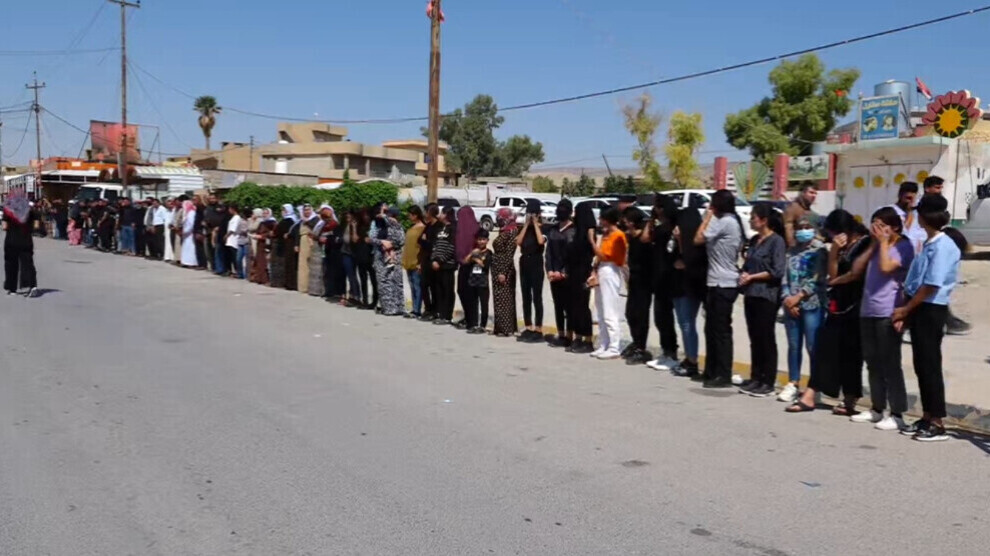Life stands still in Shengal on the anniversary of the 2014 genocide
Those who were killed and disappeared during the ISIS attack on Shengal on August 3, 2014 are being commemorated in several events.
Those who were killed and disappeared during the ISIS attack on Shengal on August 3, 2014 are being commemorated in several events.

In memory of the victims of the genocide and femicide committed by ISIS in Shengal, public life in the northern Iraqi region was stopped for three minutes at 10 am local time for a commemoration called for by the Shengal Democratic Autonomous Council.

During the moment of silence, life stood still in the entire city. All residents stood in silent homage for three minutes. While all the shops were closed, the Shengal Resistance Units (YBŞ) and military units affiliated with the Êzîdxan Asayish also kept a minute of silence.

The Yazidis, who follow one of the most ancient faiths of Mesopotamia, have suffered in the course of history 74 genocides. Most of those mass murders were perpetrated by the Ottoman empire. The first genocide was ordered in the year 1246 by the lord of Zengi of Mosul, Bedreddin Lulu, the last one by the Neo-Ottoman AKP and its ally KDP and perpetrated by the ISIS gangs. In each and every genocide, the name of Islam was used.
According to the investigations of the High Commissioner of Human Rights of the United Nations, which were made public in October 2014, the results of the attacks launched on 3 August 2014 were as follows:
- around 5000 Yazidi men were massacred
- around 100 Yazidi men were beheaded
- 7000 Yazidi girls and women were abducted and sold at slave markets
- A number of Yazidi girls and women were raped
- Some Yazidi women were forced to marry ISIS commanders
The estimated number of unknown cases was much higher than what was written in the report of the United Nations.